BlacKkKlansman press conference: Spike Lee and cast discuss the importance of being vocal in the fight against racism
Perhaps the most buzzed about film at the festival this year, Spike Lee’s BlacKkKlansman has struck a chord with audiences, and will inevitably spark new rounds of discussions on racism and the politics of a growing alt-right. At an impassioned press conference, the director and lead cast members Adam Driver, Topher Grace, John David Washington an Laura Harrier spoke about how they navigated playing real figures, the collaborative process and the racial politics in the US that are integral to the movie.
What struck us last night when we discovered your film was how surreal Ron Stallworth’s experience was and how relevant it is today. Did you feel a sort of extra urgency on set, after the Charlottesville tragedy, to tell this story?
Spike Lee: Well, the tragedy happened after we finished shooting so that was something we stuck in after. I was given Susan Bro’s phone number – she’s the mother of Heather Heyer, who got murdered when that car came crashing down the street. I was not going to put that murder scene in the film without her blessing. And Mrs Bro said, “Spike, I give you permission to put that in.” Once I got that I said, “f**k everybody else, that motherf**king scene is staying in the motherf**king movie.” Because that was a murder. We have a guy in the White House – I’m not even going to say his f**king name – who, when given the chance to say “we’re about love and not hate,” that motherf**ker did not denounce the motherf**king Klan, the alt-right and those Nazi motherf**kers. He could have said to the world: “not the United States.” The so-called “cradle of democracy,” that’s some motherf**king bulls**t. The United States of America was built on the genocide of Native people and slavery. That is the fabric of the United States of America. We look to our leaders to give us direction, to make world-decisions. And this right-wing bulls**t is not something that just pertains to America; this is going on all over the world. We have to wake up, we can’t be silent. This film, to me, is a wake-up call. We’ve gone around in a daze and stuff is happening. Things are topsy-turvy and fakeness has been trumpeted as the truth. That’s what this film’s about. I know in my heart, and I don’t care what the critics say, or anybody else. We’re doing the right side of history with this film.
(Applause)
Please excuse me for the profane words. The s**t that’s going on makes you want to curse.
How much of this film is a message directly to Trump or is it more passive?
SL: Jordan Peele called me out of the blue and pitched me the story of real-life Ron Stallworth, and while he was talking I was thinking, “this sounds like a Dave Chappelle skit!” After he finished I asked if it was true and he said yes. When Kevin and I came aboard we knew what our job was. Our job was to take this story that takes place in the early 70s and to connect this period piece to present day. What’s happening now did not just pop up out of thin air. We had to connect the two time periods and that’s why the film ends in the present day. Of course, I didn’t have a crystal ball; that ending was not written. But in a Spike Lee Joint you’ve got to flow, you can’t be rigid. You’ve got to be with it, you’ve got to be hip, you’ve got to be on it. There was no way, once I got Mrs Bro’s blessing, that I could not make that the end of the film. With the help of Focus, we’re going to release this film on the one-year anniversary of Charlottesville. It’s an ugly, ugly, ugly blemish on the United States of America. We put ads in newspapers and on Facebook to find the footage to put together all the different angles you saw and people actually sent us stuff they shot on their phones. Using the footage we had, we wanted to show to our best ability a needless… Heather should be alive now. This was a murderous act and when we look to our leaders for courage and they make the wrong choice, they give a thumbs up to hate groups, these groups come out of the woodworks.
How did the movie end originally?
SL: I forgot. Once I saw the footage that was the end of it. I’m not trying to be funny; I don’t remember what the ending was before Charlottesville.
How much do you think the timing of this movie could impact the midterm elections in the US?
SL: During the election, the guy in the office said that he could stand in the middle of Fifth Avenue, shoot somebody, and people would still vote for him. I thought, “this guy is crazy!” I never heard of someone running for the office of the president of the United States saying something like that. I don’t know what’s going to happen as far as midterm elections.
Considering this movie is based on a true story, how important was the research and did you feel a sense of responsibility to get it as close as possible?
SL: Well, the movie is based on a book and Ron Stallworth is alive – we met with him. It’s very simple; we’re storytellers who tell the damn story. It’s what we do. Not alone! I’m flanked by great artists. I don’t do this s**t alone. It’s like sports; I’m the general manager of a basketball or football team and I wanna put the best team out there to win. Filmmaking is a collaborative effort. I’ve never worked with Topher before, I’ve never worked with Laura before, never worked with Adam before; me and John go way back [referring to John’s one-line role in Malcolm X]. This is new blood! It’s great. I’m old, I’m 61. I’ve been doing this for three decades. You just want the best people in front and behind of the camera to make the best film. I’ll tell you, making a good film is a miracle. It’s some hard shit. You’ve got to go to work and you’ve got to do your research and you’ve got to learn your craft
How did you all do research on your characters and how did you then make them your own?
John David Washington: As Spike Lee said earlier, Ron Stallworth is alive and well and I was very fortunate to be able to talk to him on a weekly basis. He was very generous with his time. The 70s was a radical time and for what he had to do, there was a lot at stake. I didn’t want to mimic, I just wanted to inhabit his spirit. That was my roadmap but then, of course, you find stuff organically and collaboratively. It was a liberating experience to be able to create wholeheartedly. I come from a sports background and, like in sports, you have to be able to trust your teammates and your coach. If you can, your abilities are unlimited and I’ve never experienced anything like that before. I’m so blessed to have shared this experience with everyone.
Laura, for you too, the film was a very big experience as your first release. What kind of research did you do to prepare?
Laura Harrier: I really tried to live in that period and research it as much as I could. We were fortunate enough to meet with Helen Cleaver and listen to her speak about the Black Panthers and her relationship with Eldridge [Cleaver]. I also read Angela Davis’s autobiography and we watched the Black Panther Mixtape together. That really helped me. It was a great time and an amazing collaborative effort.
What about you, Adam and Topher? Can you elaborate on how you were guided into this performance and the duo that is your two characters?
Adam Driver: A lot of it was in the script and from the conversations we had every other week. But I mean, you can do as much research as you want but ultimately you have to be able to let it go when you’re actually doing it. I’m surrounded by incredible actors so following first impulses and paying attention to what everybody else is saying was very important. Spike also sets a very familial tone; we get home at a decent hour, we have a life outside of the film… that allowed us to feel free to fail.
Topher, how did you feel playing this absolutely obnoxious man?
Topher Grace: Well, I read My Awakening, which is David Duke’s autobiography, his Mein Kampf. I also watched a lot of The Radio. It’s like the daytime talk show before Oprah was on in the States. He sort of predates Jerry Springer as one of these controversial figures. When I got the call from my agent telling me Spike Lee wanted me to play this role it was one of the happiest moments of my life! I couldn’t believe I got to be in a Spike Lee joint, but then the month after was one of the worst months of my life because of all this crap I had to take in. When you play someone who’s alive you feel a responsibility to get it right. I felt that responsibility in the sense that people know who David is, but I did not feel that responsibility to David.
David Duke is a mixture of evil and buffoonery. How did you strike that balance and make it real?
TG: The script did that job for me. It painted a very specific picture for me and then, of course, Spike is a great coach. There was a day where I had to do something that felt really evil: we came over to the set and Spike went, “hey try this (the Nazi salute) and then scream ‘white power!’” So I did and then all the people behind me started screaming “white power!” I had to go to the corner for a minute after to think. I rarely get affected by the work, I’m not an actor with a very deep process, but with this, I was in a really bad place. Spike came over and spent some time with me and said, “don’t worry. Everything I’m asking you to do is in service of a message that you agree with.” Spike is the only director that I would play this role for.
For several reasons we could call Ron a hero, but what kind of hero is he? How would you define him as a hero?
JDW: He’s a hero for performing his civic duty to protect and serve the people of Colorado Springs, no matter what colour he was. I also think it was heroic of the men and women who supported him who were not his colour, who were white. That can’t go unnoticed. When people think, “oh this is one black man, one opportunity,” no. He was very well supported and I think that’s a huge takeaway as well.
Spike, since this is a movie about what’s happening today, how do you feel about Kanye West’s comments recently?
SL: If anyone wants to read my insights go on my Instagram @officialspikelee and you can read it. I’m not talking about Mr West here.
Could you say a few words about how you found your cinematographer?
SL: The cinematographer’s name is Chase Irwin. If you’ve seen Beyoncé’s Lemonade, he shot that. I was looking for a young cinematographer. My go-to cinematographer wasn’t available, but Chase is amazing. Also, this was shot on film, not digital. We really wanted to have the look of a 70s film. You see a lot of split screens; that’s from the 70s. I haven’t shot film in so many years that I forgot about all the little nuances.
Adam, you’re the star of this festival, acting in two movies which are both based on books and are both very important to two different groups of people. What’s that like in terms of responsibility and how did you prepare? Did you read the books?
AD: Yeah I read the books.
(laughter)
AD: I don’t know about responsibility so much because I feel like you say what you want to say by doing the movie. But when you’re actually shooting you can’t play responsibility so I don’t think about it like that.
The n-word is used frequently in this film. There’s always the discussion about who’s allowed to use this word, how many times, in what context. Why did you decide to include it?
SL: Words can be hateful and I don’t think I was elaborating about how the Klan talks about black people. Another thing, anybody who thinks the Klan just hates Black people and not Jews, you need to wake the f**k up. Jews are number two on the list. The way we had those people speak is the way they speak. They don’t speak nicely about Jews. They don’t speak lovingly about Black people. They’re horrible words but I want people who see the film to know. I want the hate to be verbalised.
People all over the world see your films and can see their own rhetoric in it. Do you think this film has the potential to get people to reconsider their opinions?
SL: I do believe in hope and I think any of my films can be hopeful. But I’m not blind or deaf. It can be hopeful but it’s still aware of what’s going on. This right-wing stuff is a global problem so I do hope that people from other countries will see this and think, “this is happening where I live.” All I can hope is that this film will shake people from their slumber. One of the criticisms of Do the Right Thing was that I didn’t provide a solution for racism. I still don’t have the answer but one of the purposes of the film was to spark a discussion. We have to be vocal; we can’t just let stuff that we know is wrong slide by. We know the difference between right and wrong and if you don’t speak up, you’re helping them.
Zoe Tamara
Photo: Getty Images
BlacKkKlansman is released nationwide on 24th August 2018. Read our review here.
Read more reviews from our Cannes Film Festival 2018 coverage here.
For further information about the event visit the Cannes Film Festival website here.
Watch the trailer for BlacKkKlansman here:


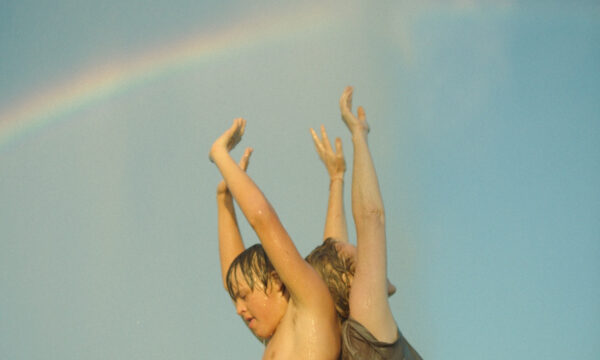
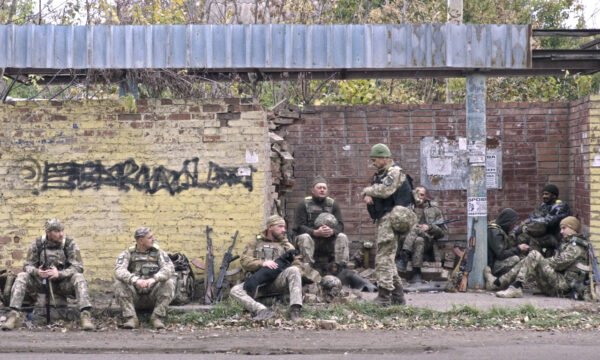
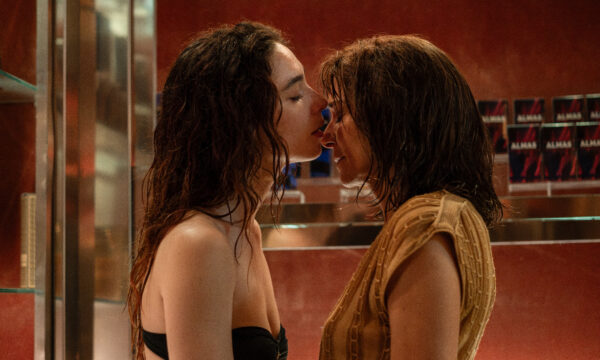
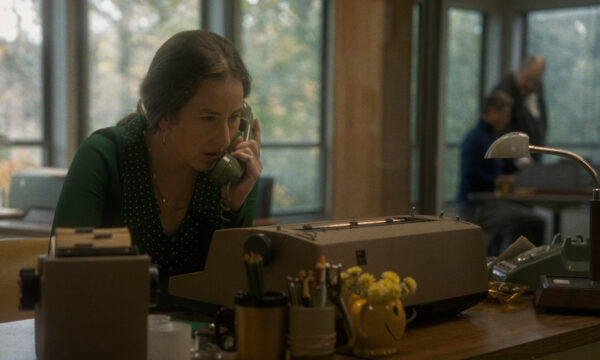


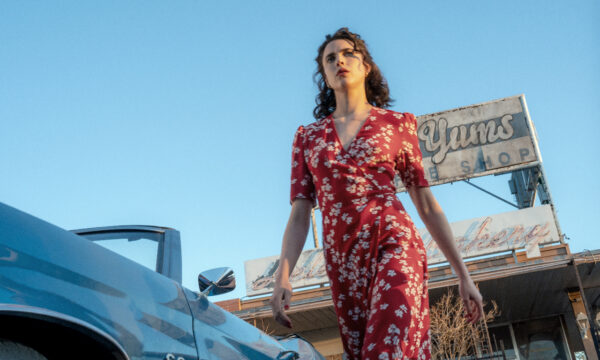
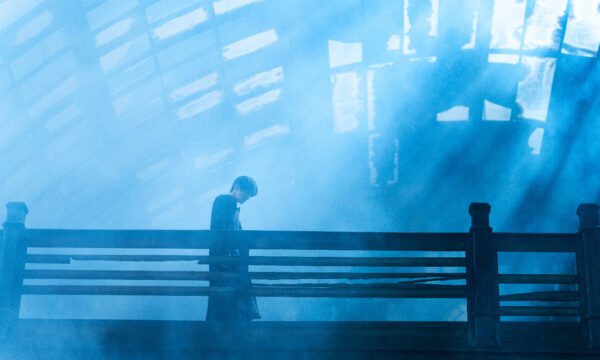
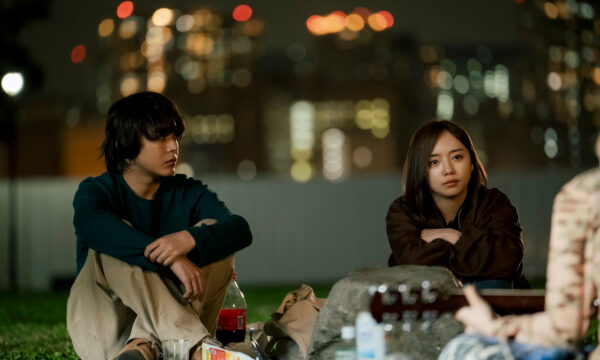















Facebook
Twitter
Instagram
YouTube
RSS